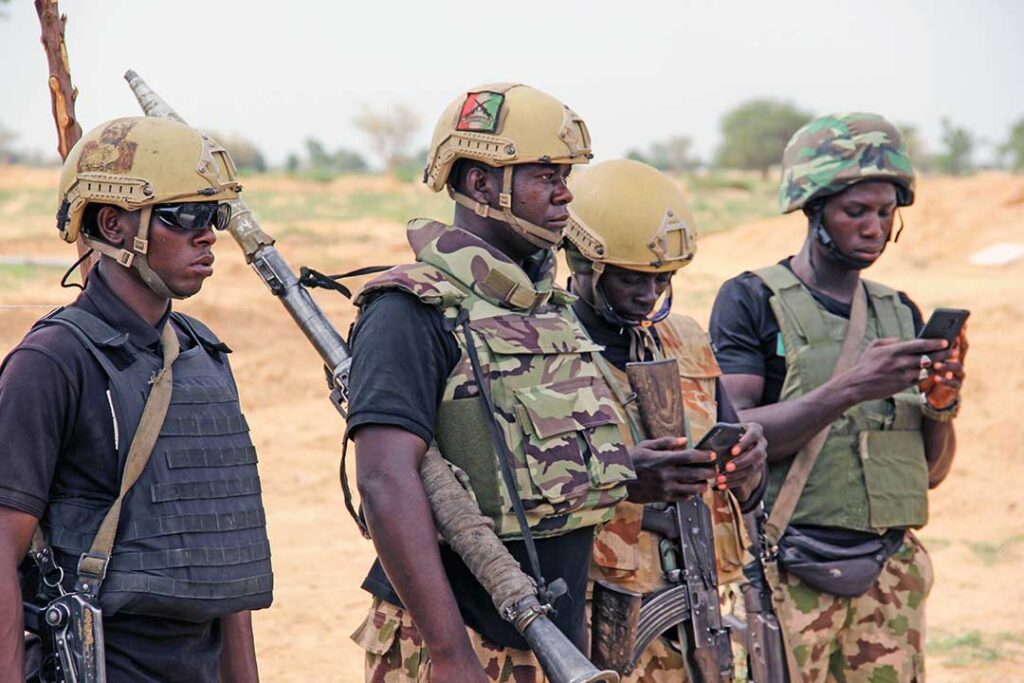ADF STAFF
The fight against Boko Haram and other extremist groups has taken a mental toll on members of Nigeria’s military.
The prevalence of post-traumatic stress disorder (PTSD) and other mental issues is so high among the nation’s armed forces that the Defence and Police Officers’ Wives Association (DEPOWA) is establishing a PTSD diagnostic, treatment and research center to serve military personnel in Abuja.
The first phase of the project was expected to be commissioned by April 2023, according to a report by Channel Network Afrique.
A survey of military wives across the country showed that many troops experience nightmares, anxiety, insomnia, bursts of anger, depression, flashbacks and suicidal tendencies from their experiences on the front lines, according to a report by Nigerian newspaper Vanguard.
“Consequently, we the wives of our gallant soldiers have decided not to sit and watch but mobilize timely intervention towards reducing the impact of such trauma on our personnel,” DEPOWA President Vickie Irabor said in the Vanguard report.
Irabor also is the wife of Nigerian Chief of Defence Staff Gen. Lucky Irabor. She announced plans for the facility during a news conference in August 2022.
“These experiences going unchecked have led to damning consequences in our military community,” Irabor said. “It is our desire to have a reintegration structure for our husbands that ensures they return to us in good health and total wellness. … When we talk about our feelings, they become less overwhelming, less upsetting and less scary.”
Irabor advocated for the anti-stigmatization of mental health issues to enable personnel to seek the proper care. The center also is intended to enhance national, regional and global stability and boost military capability, “thereby contributing to the worldwide fight against terrorism,” she added.
Retired Air Commodore Abayomi Balogun said he saw firsthand the mental effects on Soldiers while fighting wars in Liberia and Sierra Leone. Balogun established the Green Heroes Foundation to support military members and their families in 2018.
“PTSD has to be treated in phases, the first is through the mind of the soldier, then the next is to give them orientation then rehabilitation before reintegration,” Balogun said in a PRNigeria report. “We could have a serious challenge in the future if we don’t pay attention to these soldiers.”

